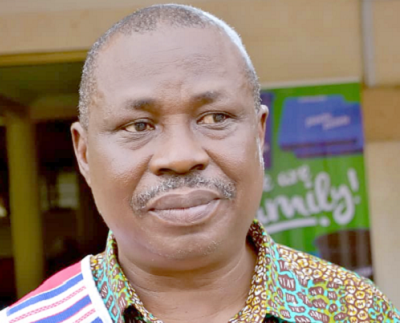
Building contractors meet with ministers over delayed payments
Daily graphic
4 minutes read
The leadership of build contractors has held separate meetings with some key Ministers of State over a number of concerns, including the perennial delayed payments for works done.
The move is part of the efforts of the new leadership of the Association of Building and Civil Engineering Contractors of Ghana (ABCECG) to foster closer collaboration with key ministries and other stakeholders in order to sanitise the industry and drive its development.
The leadership of ABCECG, led by its President, Mr Prosper Yao Ledi, met with the Minister of Education, Dr Mathew Opoku Prempeh, the Ghana Education Trust Fund (GETFund) Administrator in attendance, the Minister of State in charge of Public Procurement, Ms Sarah Adwoa Safo, who was represented by the Chief Director, as well as the Minister of Works and Housing, Mr Samuel Atta Akyea.
They also met with the Minister of Employment and Labour Relations, Mr Ignatius Baffour-Awuah.
Impact of delayed payments
At the various engagements, the contractors complained about the adverse impact of the perennial delayed payments for works done on their businesses and the entire economy and urged the ministers to help end the practice.
They also appealed to them to ensure that the GETFund contractors were paid this November as was promised.
Streamline bidding process
The contractors also called for a better streamlining of tender processes to make it fairer, adding that they wanted the project sum for contracts to be disclosed immediately the tender was opened, so that the tenderers would know their fate.
According to them, the contract sum was most of the time not disclosed or disclosed very late, keeping a lot of contractors in suspense.
They also alleged that a number of public servants were covertly bidding for projects they themselves were supervising, leading to unfair competition.
“If any public servant wants to bid, he or she should openly declare, instead of getting someone to front for them; it’s just not fair,” Mr Ledi complained in his meeting with the Minister of Education.
Another issue raised by the contractors was improper coordination between them and utility service providers who laid cables and pipes.
The contractors argued that the absence of cooperation had resulted in many instances where laid cables or pipes would have to be dug out for construction to take place.
They, therefore, called on the sector minister to lead that collaboration between them and the utility service providers to resolve the challenge.
Favouritism
Other issues raised included the perceived favouritism in favour of foreign contractors over their Ghanaian counterparts and the need for public procurement to be used as a tool to drive local content and participation.
Related to these is the fact that though some foreign contractors belong to the various local associations, several of them do not.
The indigenous contractors, therefore, wanted it to be imperative for all foreign contractors to register with local associations before they are allowed to do business in the country.
That, the contractors believe, can be done if a regulatory authority is established for the construction industry.
The president of ABCECG indicated that the association was taking steps to attract investors who could work with indigenous contractors to take on major projects and called on the government to allocate a quota of the intended infrastructural projects in senior high schools and other institutions to them, as their members were in good standing to partner investors to pre-finance those projects.
Ministers
The ministers assured the contractors of the government’s commitment to address their challenges and urged them to exercise patience as steps were being taken to fix the challenges.
For his part, the Minister of Education assured them of the resolve to pay GETFund contractors using a loan facility that Parliament was expected to approve at its current siting.
On the issue of perceived bias towards foreign contractors, the ministers advised the association to rather look at possible collaborations with them on projects together, arguing that the government would not discriminate against indigenous contractors but could also not shut its doors to foreign firms seeking to do business in Ghana.
